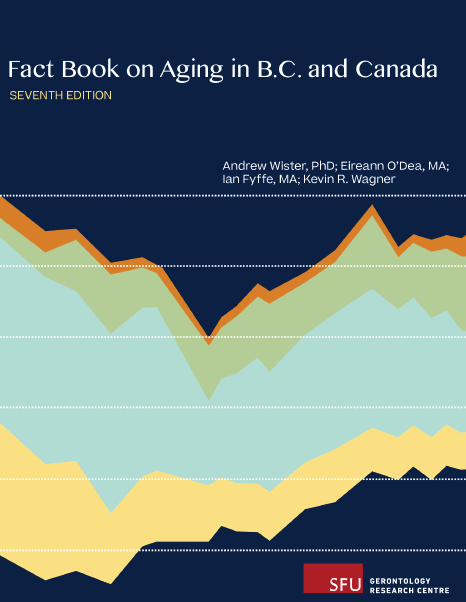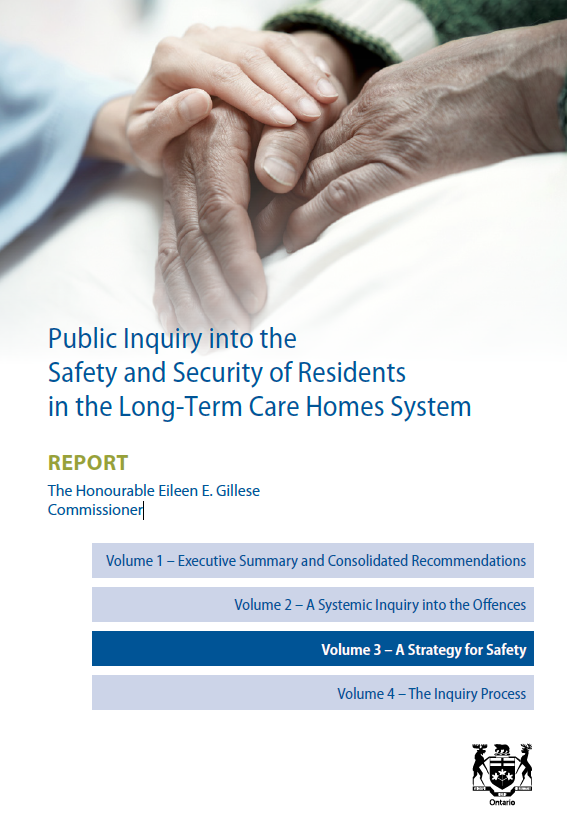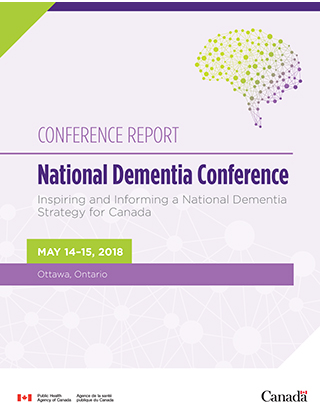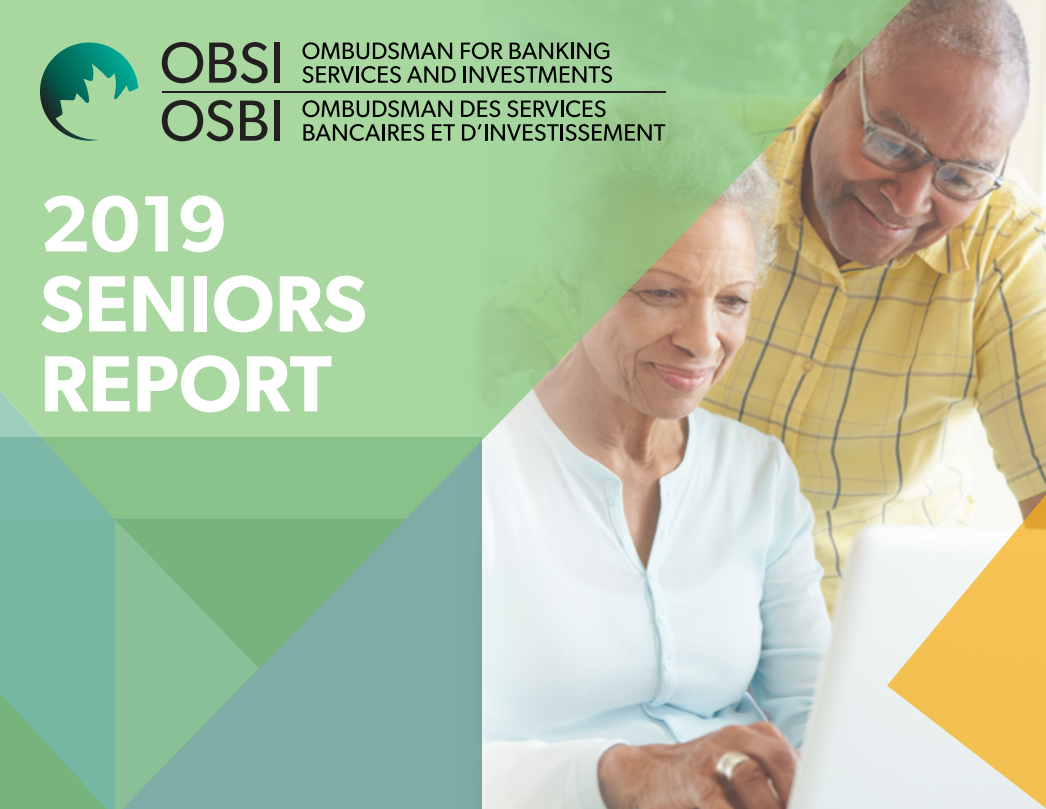 ''The Fact Book provides a range of descriptive data on a variety of topics that showcase major demographic, health and social patterns of older adults. The current seventh edition of the Fact Book is based on the 2016 Census, and supplemented with data from national health surveys, such as the Canadian Community Health Surveys, and other targeted surveys conducted in B.C.
''The Fact Book provides a range of descriptive data on a variety of topics that showcase major demographic, health and social patterns of older adults. The current seventh edition of the Fact Book is based on the 2016 Census, and supplemented with data from national health surveys, such as the Canadian Community Health Surveys, and other targeted surveys conducted in B.C.
A milestone has been reached in that over thirty years of data have been covered. We have also made some selected comparisons of key patterns across the different editions of the Fact Book in order to highlight major trends over time. The main comparisons of demographic data include: geographic comparisons between British Columbia and Canada, as well as other provinces in certain tables; gender differences; and those related to age patterns, such as comparisons between middle-aged and older persons or among senior age groups, as well as differences over time.
Topics highlighted in the 7th edition cover a wide range of areas including: the size and historical rate of growth of the elderly population of British Columbia; trends in life expectancy, mortality rates and causes of death; the marital status of the elderly population; its geographic distribution and residential mobility; ethnic composition; a description of living arrangements and housing; education, employment, and economic status; disabilities; diet and physical activity; and health service utilization. It is hoped that this monograph contributes to gerontological knowledge, practice, and policy in efforts to promote well-being over the life course.
Source: SFU Gerontology Research Centre
 Report by the Honourable Eileen E. Gillese, Commissioner
Report by the Honourable Eileen E. Gillese, Commissioner
"The Long-Term Care Homes Public Inquiry was established on August 1, 2017, by Order in Council following Elizabeth Wettlaufer’s conviction of eight counts of first-degree murder, four counts of attempted murder and two counts of aggravated assault; offences she committed while working as a registered nurse in Long-Term Care Homes.
The Inquiry’s mandate is to inquire into the events which led to the offences committed by Elizabeth Wettlaufer. Additionally, the Inquiry is directed to inquire into the circumstances and contributing factors allowing these events to occur, including the effect, if any, of relevant policies, procedures, practices and accountability and oversight mechanisms. The Inquiry is also directed to inquire into other relevant matters that the Commissioner considers necessary to avoid similar tragedies."
This is Volume 3 ("A Strategy for Safety") of the 4-part report. The Commissioner’s final report and Recommendations can all be found here.
Volume 3:
"Based on the evidence I heard in the public hearings, it is my view that systemic failings in the long-term care (LTC) system – not individual ones – created the circumstances that allowed Wettlaufer to commit the Offences. In this volume of the Report, I describe the systemic vulnerabilities identified through the Inquiry processes and propose systemic responses that must be taken if we are to avoid similar tragedies in the future. These responses are designed to prevent, deter, and detect wrongdoing of the sort that Wettlaufer, a healthcare serial killer (HCSK), committed. This chapter is devoted to strategies whose goal is prevention. Later chapters in this volume are directed at the strategies for deterrence and detection."
Source: The Long Term Care Homes Public Inquiry
 "The Ontario Association of Interval and Transition Houses (OAITH) is a 77 member-based coalition of first stage women shelters, second stage housing programs, and community-based women’s organizations; Together, we work towards eliminating violence against all women in Ontario. Our initiatives include training and resource development, advocacy, public awareness, and government relations to improve social policies that impact women and their children.
"The Ontario Association of Interval and Transition Houses (OAITH) is a 77 member-based coalition of first stage women shelters, second stage housing programs, and community-based women’s organizations; Together, we work towards eliminating violence against all women in Ontario. Our initiatives include training and resource development, advocacy, public awareness, and government relations to improve social policies that impact women and their children.
In January 2018, OAITH received funding from the Ministry of Community and Social Services to lead a 4-year province-wide training and resource project focused on ending violence against older women (VAOW) by increasing the capacity of all professionals in Ontario providing support, services, or care to older women experiencing violence.
Please visit Aging Without Violence to see a full list of project advisory members and to access resources, tools, and training opportunities focused on older women experiencing violence. In 2018, the Aging Without Violence (AWV) provincial project advisory identified Elder Abuse Networks (EANs) across Ontario as ideal focus group participants to help inform and guide the AWV project."
Source: Ontario Association of Interval and Transition Houses (OAITH)
 Inspiring and Informing a National Dementia Strategy for Canada
Inspiring and Informing a National Dementia Strategy for Canada
The May 14–15, 2018, a National Dementia Conference was held in Ottawa, Canada. The conference brought together about 200 participants from six key stakeholders identified in the Act: people living with dementia, caregivers, researchers, health professionals, advocacy groups and representatives from PT governments.
As a key consultation mechanism on the development of the national dementia strategy, the discussions during the conference focused on challenges and opportunities surrounding three overarching themes: 1) care and support; 2) research and innovation; and, 3) awareness-raising, stigma reduction, and public education.
Participants noted that the National Dementia Strategy should: address stigma associated with dementia; ensure the needs of people living with dementia at different stages along the dementia journey are met, and identify ways to enable quality of life and dignity for people at different stages of the condition. It should: enable collaboration and partnerships among all levels of government, partners and stakeholders, including people living with dementia, their families and those who care for them; enable sharing and scaling up of best practices within and across provinces and territories; consider diversity factors such as cultural, ethnicity and linguistic considerations, rural and remote communities, gender differences, developmental disabilities; and include clear accountability for federal, provincial and territorial governments and other partners. This report provides highlights of the discussions at the event. The outcomes of the conference and other stakeholder engagement processes to date will be included in a“What We Heard” report, which will be released in the Fall of 2018. All input will inform the development of the National Dementia Strategy.
Source: Public Health Agency of Canada
 The Ombudsman for Banking Services and Investments has released their first Seniors Report, where they examine seniors' complaints and explore the challenges that older adults experience while using financial services. The national, not-for-profit organization collected demographic and case data for 2017 and 2018 to create the report, which used the age of 60 as the threshold age of a senior.
The Ombudsman for Banking Services and Investments has released their first Seniors Report, where they examine seniors' complaints and explore the challenges that older adults experience while using financial services. The national, not-for-profit organization collected demographic and case data for 2017 and 2018 to create the report, which used the age of 60 as the threshold age of a senior.
Source: OBSI
Page 8 of 20

















